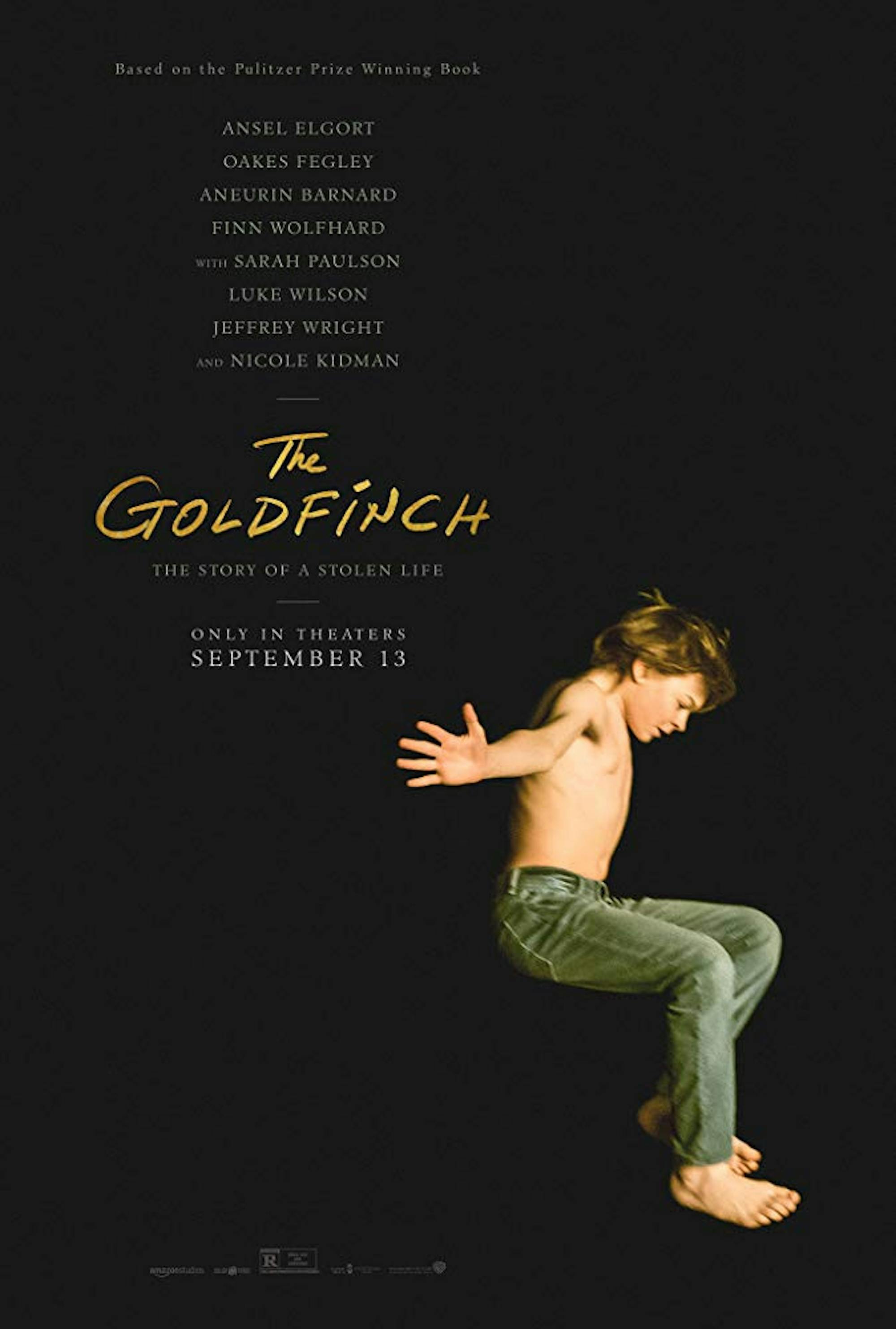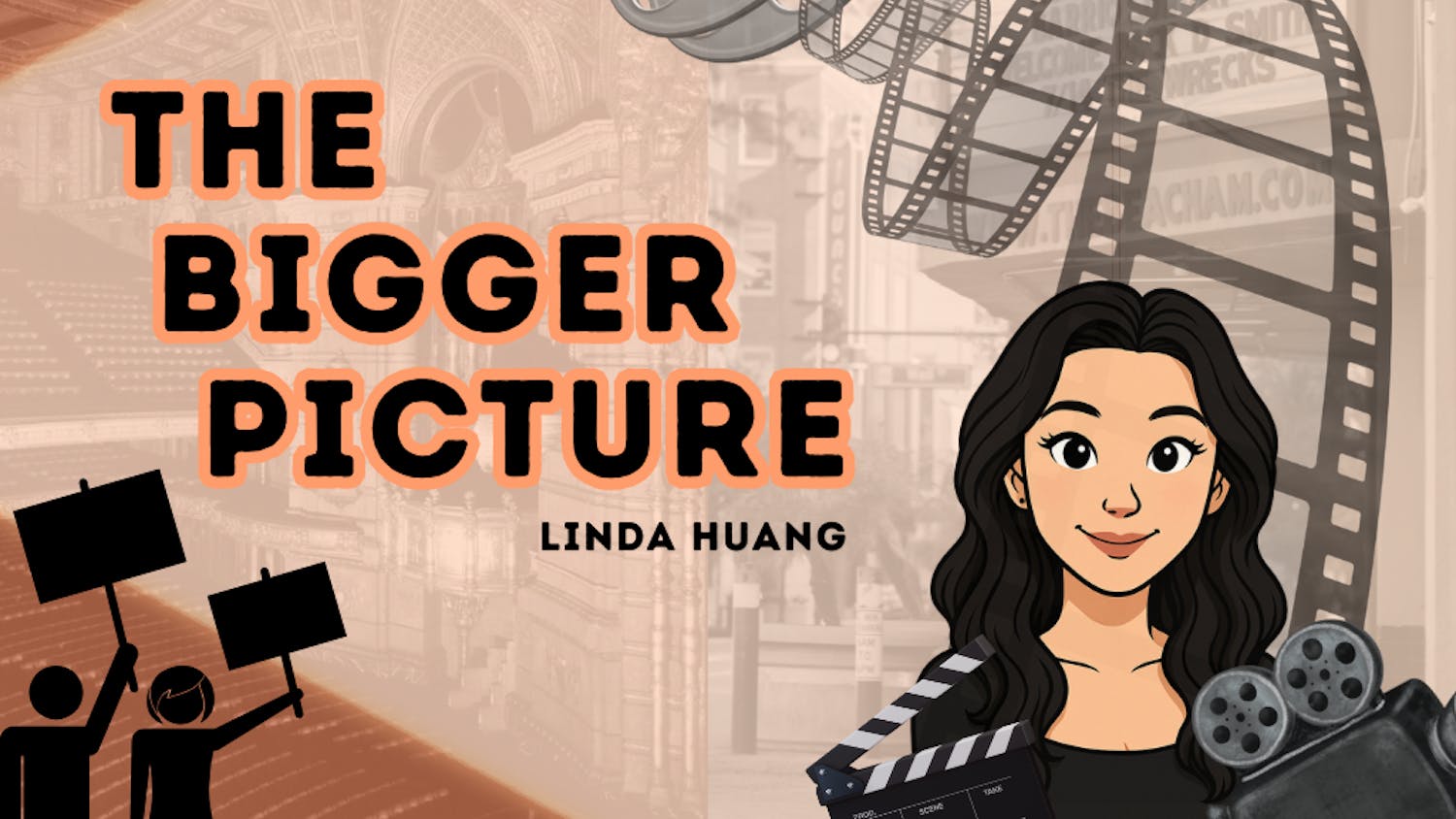Director John Crowley’s new film “The Goldfinch” (2019) brings to the silver screen author Donna Tartt’sPulitzer-Prize-winning story of tragic hero Theo Decker as he navigates life following a terrorist attack that kills his mother and destroys New York’s Metropolitan Museum of Art.Theo finds himself living through impossible highs and unbearable lows, his story intrinsically connected to the piece of artwork that survives the attack with him. The film is a rose-tinted tragedy, with each marker of despair that enters Theo’s life matched with the beauty and art that surrounds him. However, the golden facade hides a boring and empty story.
The film, overall, fails at its most basic intentions — that is, to express the profound tragedies that our protagonist faces. The story portrayed in the movie is inauthentic, bored and distilled. The source material for the movie is impossibly long, and in adapting the novel and trying to stay true to all the major plot points, the film really fails at capturing the emotion that lies underneath and within each moment. By jumping from experience to experience, the film touches on how lead Theo Decker feels but never delves deep into the uncomfortable and distressing aspects of his experiences. Without the emotion, the tragedy becomes simply the spark that sets off the next chain of events, and the sentiments lack empathy. Furthermore, the film showcases the beauty of art and antiques without really getting right the profound connection to humanity that the story is meant to emphasize. There are many decently-written speeches recited throughout the film that try to express the importance and humanistic value of art, but it never truly expresses the emotion behind such sentiments. This lacking aspect of the film is not altogether unexpected. The novel exists through Theo’s philosophical and terrorized introspection, and such inner thoughts are understandably hard to translate to the visual medium.
The acting was a collection of very varied performance levels. Ansel Elgort and his younger counterpart, newcomer Oakes Fegley, both give emotional and mostly effective performances. So, too, do Nicole Kidman, Luke Wilson and Jeffery Wright. Others were not nearly as authentic, like Finn Wolfhard, whose portrayal of young Boris was distractingly caricature-esque. Wolfhard’s Ukrainian accent was sloppy and over-the-top, and his performance fully relied on the accent alone. His mannerisms and inflections were weak in the assumption that his Ukrainian accent would define the character.
The film’s cinematography was a definite high point of the movie. Roger Deakins excels at creating a backdrop of exquisite sophistication, and realizes the story’s love of the picturesque and the beautiful. A lot of the film’s editing, though, was hit-or-miss; the film made the chaotically-themed scenes more chaotic through different cuts and color saturations (there is a moment where the whole shot slowly fades to white), and though this usually works really well, there are moments in the film where these edits create too much dissonance and cut the film into separate vignettes. The sound editing and sound design were good but uninspired, with the score matching the underwhelming nature of the movie. The set and costume design were, just like the cinematography, very effective and beautifully done. A lot of the writing did not match Tartt’s stellar work, especially the dialogue. There was a gap in quality between the lines that were lifted (almost word for word) from the novel and those that were written by screenwriter Peter Straughan.
Overall, the film was a boring, albeit beautiful, adaptation. As Tartt writes in "The Goldfinch” (2013), “isn’t the whole point of things—beautiful things—that they connect you to some larger beauty?” In the movie’s case, the glamor was empty and hollow, the themes emotionless and underplayed, and the larger beauty absent.
'The Goldfinch' is a cold, hollow restoration

A promotional poster for 'The Goldfinch' (2019) is pictured.
Summary
Overall, John Crowley’s “The Goldfinch” is a boring attempt to bring Donna Tartt’s profound novel to the silver screen. It is beautiful visually, but ultimately lacks the emotion that made the novel so great.
2.5 Stars





